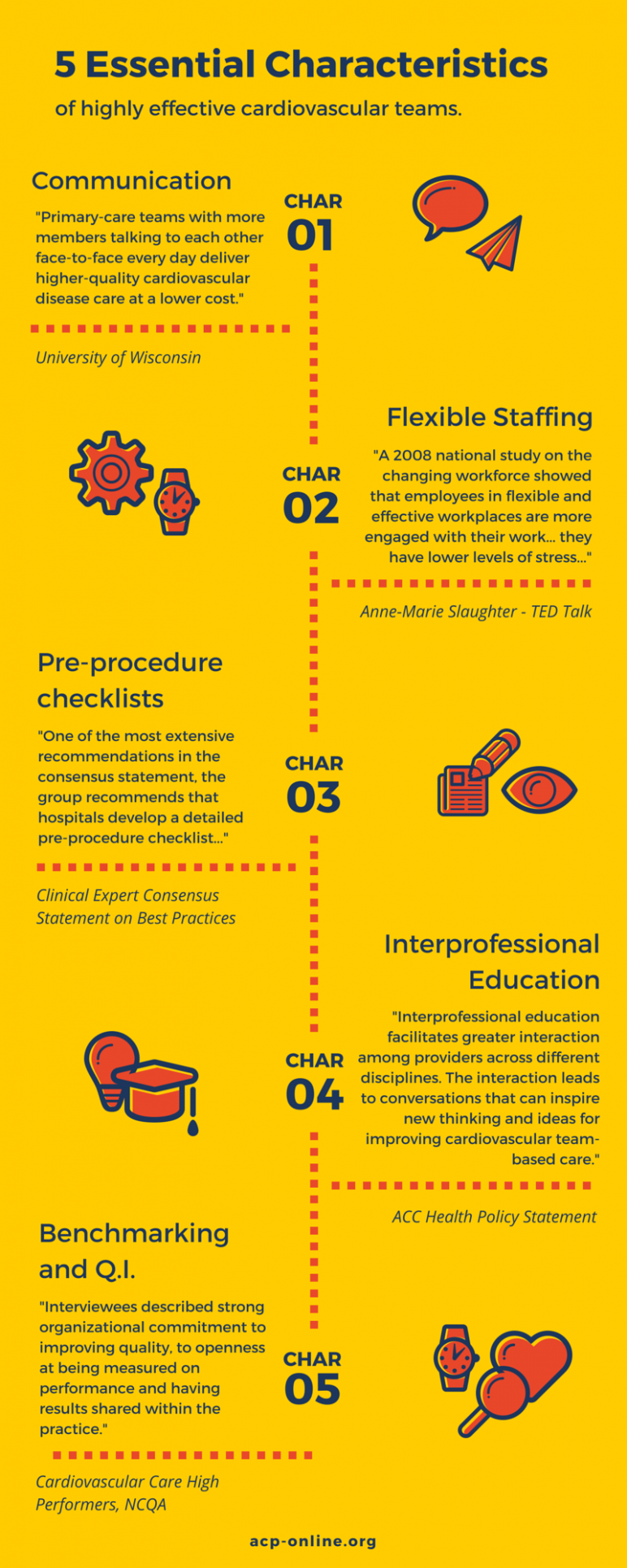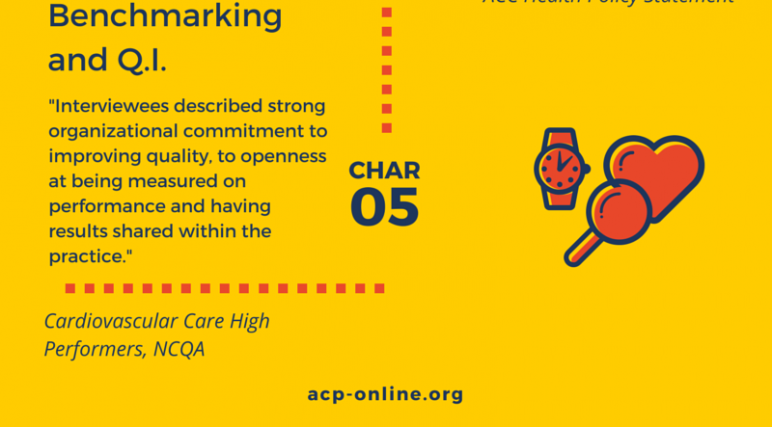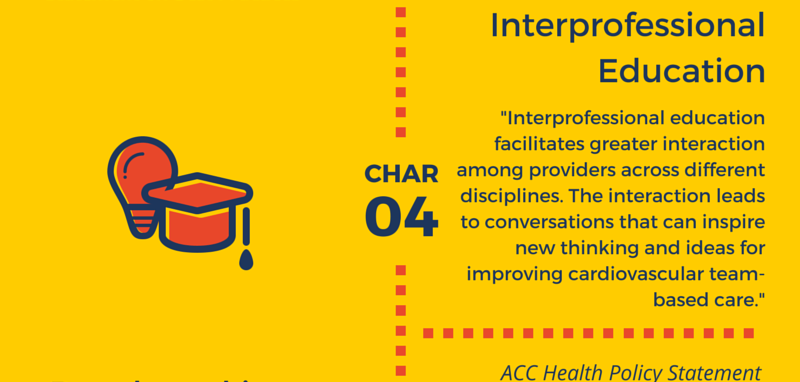Read more about each essential characteristic of effective cardiovascular teams on the Alliance of Cardiovascular Professionals Blog.
[infographic] 5 Essential Characteristics of Effective Cardiovascular Teams


Read more about each essential characteristic of effective cardiovascular teams on the Alliance of Cardiovascular Professionals Blog.

In a 2014 report entitled "Cardiovascular Care High Performers," the National Committee for Quality Assurance detailed the importance of benchmarking and continuous cardiovascular quality improvement.
What is the practice culture of effective cardiovascular teams, according to the report? It's characterized by a "strong organizational commitment to improving quality, to openness at being measured on performance and having results shared within the practice, to working on closing gaps and to trying new strategies to engage patients."
Commitment and openness, especially to being measured, sharing results, and working on closing quality gaps, has been proven to improve outcomes, from a single group to an entire state.
Continue reading Benchmarking and Quality Improvement – Essential Characteristic #5

Kaiser Permanente proudly reported last week the increased adoption of their daily statin regimen, but is the increased use of statins positive or negative?
The medication regimen bundles two generic drugs - a cholesterol-lowering statin and a blood pressure-lowering drug in daily doses to patients with diabetes or heart disease.
In 2009, Kaiser Permanente released a study showing that their protocol lowers the chance of hospitalization for heart attack or stroke the following year by more than 60 percent.
Continue reading Can Statins Reduce Heart Risk? – Cardiac News Round-Up

We're still counting our five essential characteristics for highly effective cardiac care teams. Number four? Interprofessional cardiovascular education.
ACVP Blog recently discussed the ACC's Health Policy Statement advocating for team-based care.
In that statement, the authors also detailed the importance of interprofessional cardiovascular education in facilitating team-based care and communication, another one of our essential characteristics for highly effective cardiovascular teams.
Continue reading Interprofessional Cardiovascular Education – Essential Characteristic #4